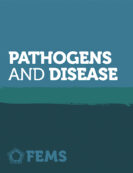FEMS Microbiology Letters Poster Prize: Sandra Memela
miCROPe (2017)
The 2017 miCROPe symposium – “Microbe-assisted crop production – opportunities, challenges and needs” – took place on the 4th – 7th December, 2017.
Organized by the AIT Austrian Institute of Technology and by the Austrian Association of Molecular Life Sciences and Biotechnology (ÖGMBT), the symposium covered various aspects of crop production through microbial research. These included mechanistic understanding of beneficial plant-microbe interactions, microbiome research with a focus on microbiome and multi-trophic interactions, formulation and application know-how, as well as the importance of microbial inoculants for rural development.
FEMS Microbiology Letters awards a Poster Prize ar miCROPe 2017 to Sandra Memela. Read an interview with Sandra below.
Sandra Memela
What is your current position, and what was your scientific journey to get there?
I’m currently a PhD Microbiology student registered with the University of KwaZulu-Natal (South Africa), and doing my research in collaboration with the South African Sugarcane Research Institute (SASRI).
Before this, I had graduated with a BSc. degree in Biochemistry and Microbiology, then went to pursue an Honours degree. I did a one year research internship in SASRI to gain exposure in applied microbiology and agricultural research. This sparked my interest in applied microbiology and prompted me to pursue a Master’s degree.
Subsequently I’ve enrolled for a PhD to further my knowledge and understanding into plant interactions with beneficial fungi.”
Could you describe the research your poster covered?
My poster reported on the successful endophytic colonization of sugarcane plants by Beauveria bassiana, an entomopathogenic species which also forms endophytic associations with plants. Research into endophytic colonization of sugarcane by B. bassiana is currently scarce. Artificial inoculation of this fungus in agricultural crops has shown ability to reduce insect feeding damage and promote plant health.
My poster reported the presence of B. bassiana DNA in sugarcane plants three months post spray inoculation following assessments with specific primers and detection using qPCR. It also depicted that B. bassiana colonized plants weighed more (below and above weights) than control plants, thus these isolates may promote growth.”
What do you hope to focus your research on in the future?
There are so many interesting research fields on microbes. I would love to do collaborations with researchers who investigate interactions of entomopathogens or beneficial microbes with agricultural crops. Research on genetic diversity of these microorganisms, how they interact with each other and how their interactions affect the plant and pests.”
All but one of the FEMS journals are now fully open access (OA), with one journal, FEMS Microbiology Letters remaining a subscription journal with free-to-publish and OA options. Open access is key to supporting the FEMS mission of disseminating high quality research as widely as possible: when high quality, peer reviewed sound science is open access, anyone, anywhere in the world with an internet connection, can read it.







